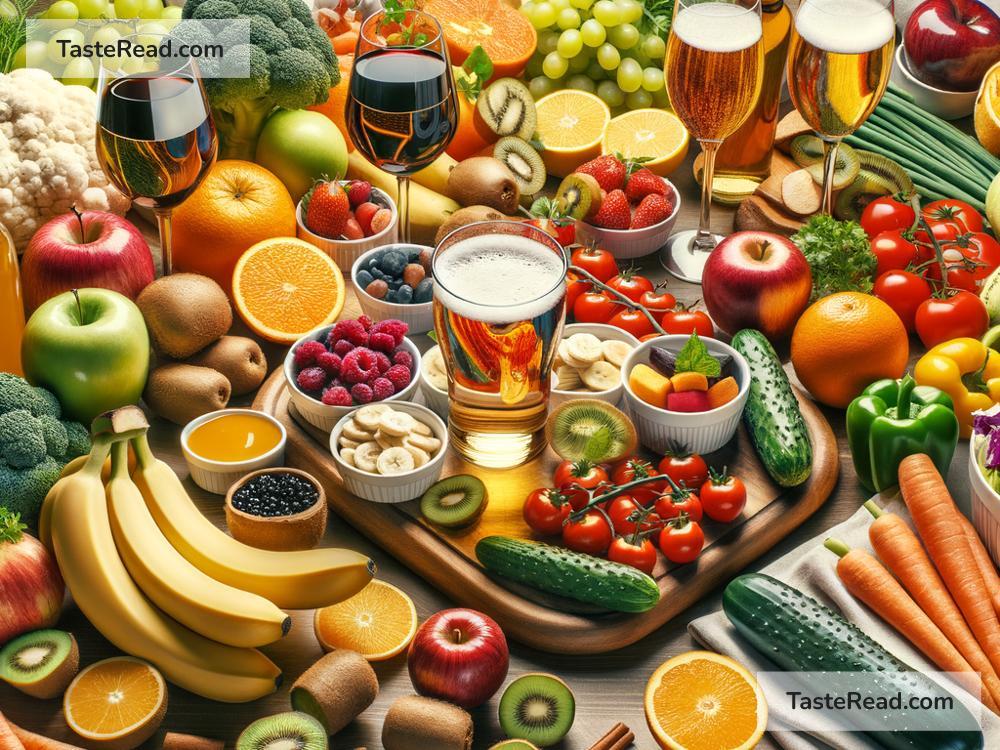The Impact of Alcohol on Nutrition: What You Need to Know
Alcohol is a popular drink enjoyed by many people around the world. It can be found at parties, celebrations, dinners, and social gatherings. While drinking alcohol in moderation can seem harmless for most adults, having too much can negatively affect your health. One area where alcohol causes serious problems is nutrition. Let’s explore how alcohol impacts your body’s ability to stay nourished and healthy.
What Happens When You Drink Alcohol?
When you drink alcohol, your body treats it differently than other foods or drinks. Alcohol is quickly absorbed into the bloodstream through the stomach and small intestine, bypassing the usual digestion process. Your liver works hard to break down the alcohol and remove it from your body, but this effort can take a toll. If you drink too much, alcohol overloads your system and disrupts many important functions, including those related to nutrition.
Alcohol and Calories: Empty Energy
Alcohol contains calories, but they aren’t the same as the ones you get from healthy food. Instead, these are “empty calories.” This means alcohol has no vitamins, minerals, or any nutrients that your body needs to work properly—just energy. For example, one glass of beer or a shot of liquor can contain 100–150 calories. If you drink several alcoholic beverages in one night, the calorie count adds up fast.
The problem with empty calories is that they provide no health value while contributing to weight gain. Drinking often can harm your diet and make it harder to maintain a healthy weight. Instead of using calories from nutritious food, your body may rely on calories from alcohol, which leaves you malnourished over time.
Alcohol’s Effect on Nutrient Absorption
Alcohol doesn’t only add empty calories to your diet; it also interferes with how your body absorbs nutrients. When your body processes alcohol, it prioritizes breaking down the alcohol instead of digesting food and absorbing nutrients. This can result in several nutritional deficiencies.
- Vitamin Absorption Issues: Alcohol blocks your body’s ability to absorb vital vitamins such as vitamin C, vitamin D, and B vitamins. These vitamins play a role in energy production, immune support, and healthy skin, among other things.
- Mineral Loss: Heavy drinking can reduce your levels of key minerals like calcium, magnesium, and zinc. These minerals are essential for strong bones, muscle function, and maintaining a healthy immune system.
- Protein and Fat: Alcohol can also impact how your body processes protein and healthy fats, which leads to further nutritional imbalance.
Over time, regular alcohol use can cause problems ranging from feeling tired all the time to chronic diseases due to the lack of nutrients. This is why nutrition is so important, especially if you consume alcohol regularly.
Impact on Your Gut Health
Your digestive system plays a big role in turning food into energy and nutrients that your body can use. Alcohol can damage the lining of your stomach and intestines, making it harder for your body to absorb food. For example, alcohol increases stomach acid production, which can lead to irritation and inflammation. This can cause discomfort, poor digestion, and even long-term gut conditions.
Alcohol also disrupts the balance of bacteria in your gut. Your gut microbiome contains trillions of good bacteria that help with digestion and overall health. Drinking too much alcohol can throw off this balance, leading to problems like bloating, diarrhea, or even worse—long-term gut damage.
Alcohol and Appetite
Another way alcohol affects nutrition is by changing your appetite. After a few drinks, many people notice they feel hungrier and crave junk food. This is because alcohol can cause blood sugar levels to drop, making you feel light-headed or hungry. It also lowers your self-control, so you might reach for unhealthy snacks and eat more than you planned. This kind of overeating can lead to weight gain and poor nutrition choices.
In some cases, alcohol can also suppress appetite. People who drink excessively may eat less than their bodies need, leading to malnutrition. Both overeating and undereating as a result of drinking alcohol can harm your overall health.
Long-Term Effects on Nutrition
Drinking alcohol regularly can cause long-term harm to your nutritional health. Some potential risks include:
- Malnutrition: Heavy drinking often leads to a lack of essential vitamins and minerals, which can harm your organs and overall health.
- Liver Damage: The liver is responsible for breaking down alcohol and storing nutrients. Drinking too much can damage the liver, making it harder for your body to stay nourished.
- Chronic Diseases: Poor nutrition caused by alcohol use can increase your risk of diseases like diabetes, osteoporosis, and heart problems.
How to Drink Responsibly
If you enjoy drinking alcohol, the good news is that you can still find ways to balance it with good nutrition. Here are a few tips:
- Drink in moderation. Experts recommend limiting alcohol to one drink per day for women and two drinks per day for men.
- Eat nutritious foods before you drink. This helps slow the absorption of alcohol and gives your body the nutrients it needs.
- Stay hydrated by drinking water between alcoholic beverages.
- Choose lower-calorie alcoholic drinks, such as light beer or wine, instead of sugary cocktails.
By drinking responsibly and prioritizing a healthy diet, you can minimize the negative effects of alcohol on your nutrition.
Final Thoughts
Alcohol can have a big effect on your nutrition, especially if you drink too much or too often. It adds empty calories, blocks nutrients, and harms your digestion. Over time, these impacts can lead to serious health problems. However, with moderation and healthy eating choices, you can enjoy alcohol responsibly without harming your nutrition. Remember, your body needs good food to function well—so be mindful of how alcohol fits into your overall diet.


